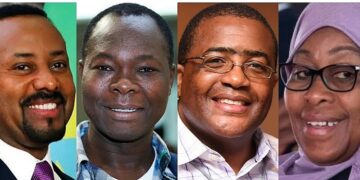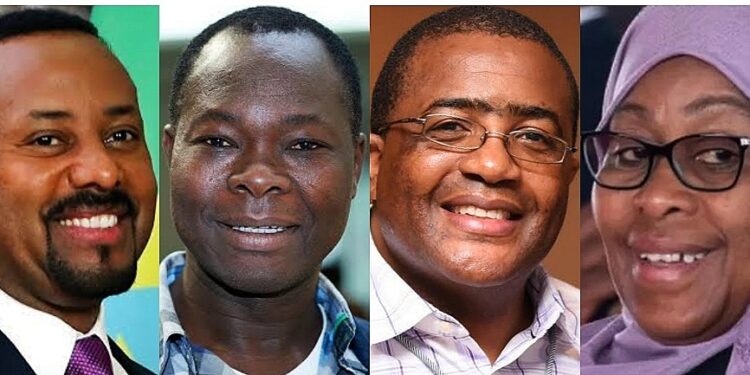By John Ikani
Four Africans made it to the list of TIME magazine’s 100 Most Influential People of 2022.
This year’s prestigious TIME 100 most influential people was released on May 23.
The list, which features African leaders including Tanzanian President Samia Suluhu Hassan and Ethiopia’s Prime Minister Abiy Ahmed, categorised the personalities under six categories — Artists, Innovators, Titans, Leaders, Icons and Pioneers.
Brief history of TIME’s 100 and why it matters
TIME 100 is an annual list of the 100 most influential people in the world which is assembled by the American news magazine TIME. It was first published in 1999 as the result of a debate among the American academics, journalists and politicians, however, the list is now a publicized annual event.
Appearing on TIME’s 100 Most Influential People list is often seen as an honour and the magazine makes it clear that the entrants are recognized for changing the world.
How does TIME create the most influential list?
In its report on how the nineteenth annual list was made, TIME revealed that the only parameter editors of the magazine consider when selecting the names is the influence of a personality.
“Who shaped the year? Who stood up? Who stood out? Influence, of course, maybe for good or for ill—a dichotomy never more visible than in this year’s TIME 100,” noted TIME.
Below are the Africans who made it to the list.
Samia Suluhu Hassan – Tanzania
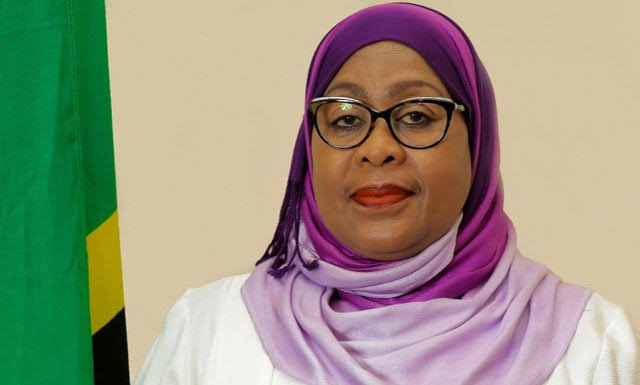
62-year-old Samia Suluhu Hassan is a Tanzanian politician who is serving as the sixth and current president of Tanzania.
Born and raised in Zanzibar Island, President Samia began her political career in 2000 when she was elected as a special seat member to the Zanzibar House of Representatives.
Samia was sworn in as President on March 19, 2021 following the death of her predecessor John Pombe Magufuli.
She has given Tanzania a diplomatic face-lift after the isolation during the Magufuli era.
In her one year as President, Samia has appointed more women to her cabinet to lead prominent ministries, including ministries of Health, Tourism and Security. She has also held talks with opposition leader Freeman Mbowe three times.
Former Liberian President Ellen Johnson Sirleaf, writing for TIME, describes Ms. Suluhu as a leader whose presence at Tanzania’s helm has opened a door for dialogue between political rivals toward rebuilding trust in the democratic system.
“Efforts have been made to increase press freedom, and women and girls have a new role model,” writes Ms. Sirleaf.
TIME also commends President Suluhu, who has led the East African state since March last year, for her “tonic” leadership style
“That year has made a big difference to Tanzania. A door has opened for dialogue between political rivals, steps have been taken to rebuild trust in the democratic system, efforts have been made to increase press freedom, and women and girls have a new role model.”
Abiy Ahmed – Ethiopia
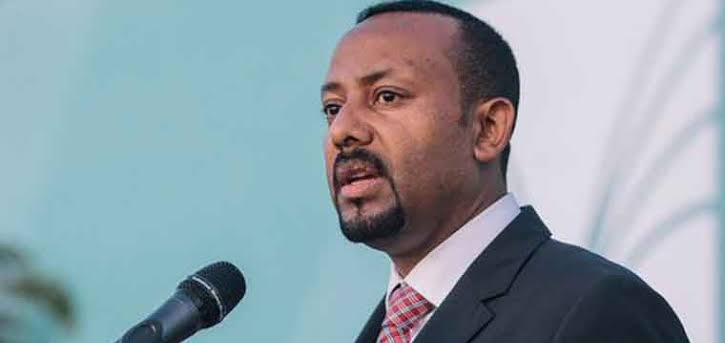
Prime Minister Ahmed was recognized for his role in mitigating the strained relations his country has with neighbouring Eritrea which have resulted in a civil war.
Baker, a TIME senior correspondent, remarks that “Abiy’s peace treaty with Eritrean dictator Isaias Afwerki inspired hopes for a transformed region, but also planted the seeds for an Ethiopian civil war.
“In March, he declared a truce to allow humanitarian access to the region, which had been blocked for months. But like a previous “humanitarian truce” in June 2021, it appears to be largely strategic, and little real aid has arrived,” the magazine said of the Nobel Laureate.
Dr Sikhulile Moyo and Professor Tulio de Oliveira
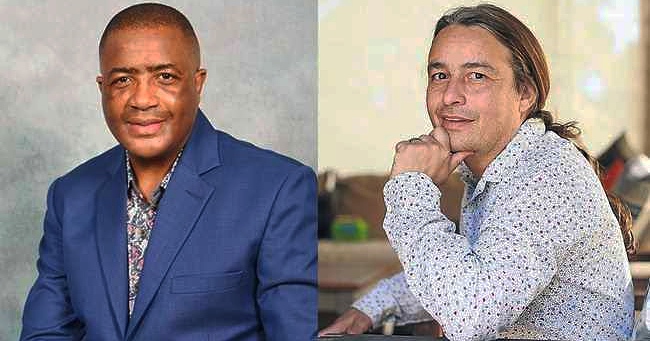
Also on this year’s list were two leading Southern African scientists Professor Tulio de Oliveira and Dr Sikhulile Moyo.
South Africa’s De Oliveira is a professor of bioinformatics, holding a joint appointment at Stellenbosch University’s (SU) School for Data Science and Computational Thinking, the faculty of science and the faculty of medicine and health sciences.
Botswana-based researcher Moyo is an SU alumnus who obtained his PhD in medical virology at the university in 2016, and now serves as laboratory director at the Botswana Harvard Aids Institute Partnership (BHP).
The two scientists are recognised for their hard work in the genomics field and epidemiology.
Their work stretches back to November 2021 where they led a team that was the first to discover the Omicron variant of SARS-CoV-2, which quickly became the dominant variant of the virus globally.
John Nkengasong, director of the Africa Centres for Disease Control and Prevention, wrote about Moyo and de Oliveira in a May 23, 2022 article in TIME that scientists in Africa have been monitoring and sequencing pathogens before the COVID-19 pandemic.
Nkengasong added that “Every generation has people who inspire subsequent generations. Sikhulile and Tulio have the potential to be that for people who will work in public health and genomics. We have not seen the end of their contributions.”
Francis Kéré — Burkina Faso
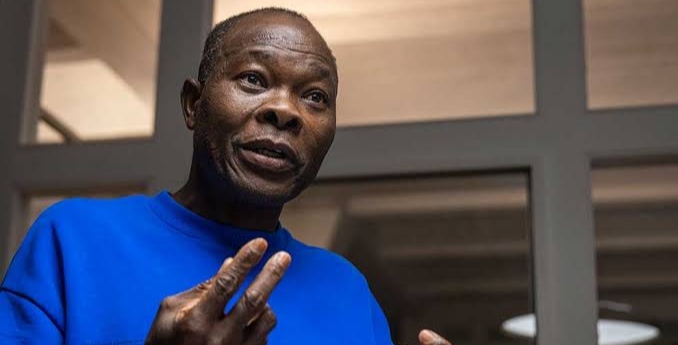
Not to be left out of TIME magazine’s long-awaited list of the 100 most influential personalities is Francis Kéré.
Kéré was recognised by the magazine as one of the most influential people of 2022 for bringing to the world “a different kind of contemporary African architecture.”
The short note that features Kere on the list was written by the brilliant world-class Ghanaian architect David Adjaye who described him as a trailblazer for his long-standing commitment to formalizing space for both social and environmental good.
“Francis Kéré brings a different kind of contemporary African architecture to the world. The 2022 Pritzker Prize winner has built a career out of making places that exist on the periphery—places that have a transformative impact on how communities and societies see and serve themselves.”
“He is a trailblazer for his long-standing commitment to formalizing space for both social and environmental good. In this sense, his legacy lives not just in his built work but also in his general practice and methodological spirit. This is manifest not only in Kéré’s completed buildings—such as a Burkina Faso–based health centre that boasts roofs designed to collect needed rainwater—but in the integrity of his process, which is predicated on knowledge building and knowledge sharing as he works with local communities to inform his creations. His recognition is fully and rightfully deserved.”
